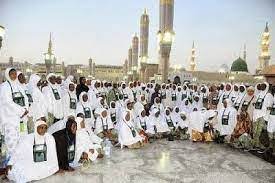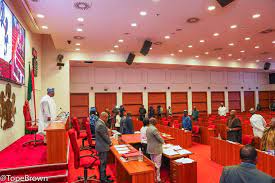IYALLA ADAYE writes on the plan to change the political equation in Rivers state and its implication on who emerges as Governor Rotimi Amaechi’s successor in 2015
Electing a Kalabari as successor to the incumbent governor of Rivers state, Rotimi Amaechi in 2015, is a task that must be done. This is the wish of the President, Rivers Liberation Alliance (RLA), Sir Opunabo Christian Inko-Tariah. This position is coming against the backdrop of the politicking and high power intrigues and struggle dogging the processing of picking Amaechi’s successor.
A top government source in Government House, Port Harcourt , told our reporter that the dramatic turn by Amaechi to change the political equation, was informed by fear that an upland governorship candidate might not gather wide support from Rivers people, especially as the riverine people, who are in the majority are agitating that it is their turn to produce the next governor in 2015.
Before now, the governor was rumoured to be planning to project the lawmaker representing the Rivers South Senatorial District in the National Assembly, Senator Magnus Abe as his successor. Abe, an Ogoni man was Secretary to the State Government (SSG) during Amaechi’s first tenure.
However, following the brewing controversy and the wide condemnation trailing the speculated governorship ambition of the Minister of state for Education, Nyesom Wike, on the People’s Democratic Party (PDP) platform, the governor is contemplating an Okrika man as his successor.
The governor, in what could be described as a Freudian slip, hinted on this new strategy when Ogun/Bolo chiefs visited him recently. He told the delegation:
“For those who want to be governor, I will not by law be allowed to be governor again; I have served my terms, so from next month, we just have twelve months to hand over.
“Now, what to tell you is what I am now fighting for; to give the Okrika man, the Ogun/Bolo a voice after leaving office and I can tell you why I say so.
“So, we must show justice and ensure that it is equitably distributed; even if you are one ethnic group of 20,000 persons, you have a right to the governorship of the state”
However, notwithstanding Amaechi’s dramatic ‘topsy-turvy’ swing towards a riverine governorship in 2015, it was gathered that any plot to impose an Okrika man on Rivers people as the next governor may still hit the brick wall since the former governor, Rufus Ada-George, hails from Okrika. Indications are rife that the Kalabari, Opobo and Bonny people will resist any move by Amaechi to install an Okrika man as his successor.
The fact that they constitute the majority in the state means they may have their ways, especially with non-indigenes alleged to be supporting them because of their good rapport with President Goodluck Jonathan. Again, Nwike’s prospect of emerging the PDP standard bearer for the 2015 gubernatorial election is slim as he has, once again been rejected by his kinsmen who rather opted to back an Ogoni candidate for the top job to ensure fairness, equity and justice.
Besides, his major supporter, wife of the president, Dame Patience Jonathan, recently said she had not endorsed anybody as PDP governorship candidate in the state.
Speaking on this development, the PLA President, Mr. Inko-Tariah said although he is an advocate of the principle that the best should emerge in a democracy, Rivers has a peculiar situation giving its geopolitical and cultural configuration that has, over the years, seen political power revolve around the upland/riverine dichotomy. This, he believes, has the panacea for peaceful coexistence and warned that any attempt to distort this arrangement is simply an invitation to chaos.
According to him, article 7 of the PDP constitution harps on rotation, without which a lot of Rivers people and ethnic groups, giving their numerical strength might not have a sense of belonging and the opportunity to taste political power. “I am sure this principle of reflection, rotation and accommodation of all components of a political entity, be it state or federal, can be found in the constitution of the APC”, he said.
The opinion leader noted that those riverine civilians, who championed the agitation for the creation of the state, never had the opportunity to become governors. As a young military officer, Alfred Diete-Spiff, he recalled, ended up becoming the first governor even though he was not one of the architects of the creation of the state.
Explaining further, he noted that John Baptist was the fore runner of Jesus Christ but he was not Christ while Martins Luther King Jr, despite championing the cause for the liberation of blacks in the US, did not live to enjoy the benefits of that emancipation that saw a black man becoming the President of America in 2008.
Arguing that the riverine people have been fair and supportive to their upland brethren, Inko-Tariah also recalled that in 1999, the Kalabaris voted massively for Dr. Peter Odili to emerge as governor, despite having the opportunity to grab the chance.
Countering the argument that the four Ikwerre LGAs have one third of the voting strength of the state based on the 2006 voters registration exercise, Tariah said it is make-believe and that there is absolutely no ounce of truth in it.
According to him, a detailed examination of the registered voters in Obio/Akpo LGA showed that 240,000 registered voters in the LGA are non-indigenous population, noting that no single Ikwerre political gladiator can lay claim to controlling the remaining voters. In his analysis of the voting strength of Port Harcourt City Local Government Area, he said that LG is worse as the riverine inhabitants control more votes than the Ikwerre elements.
He disclosed that Ward 20 alone, which is inhabited mostly by Okrika people, has about 56,000 votes; Ward five has 45,000 votes; Ward six, 26,000; Ward seven 30,000 votes; and Ward four 26,000.
According to him, these wards are inhabited predominantly by Kalabaris, Okrikans, Opobo, Bonny, and Adoni people, pointing out that the implication is that the riverine elements in PHALGA control 83,000 votes or 60 per cent of the votes.
“The Igbo residents from my empirical research controls 20 per cent of the votes in PHALGA, leaving the Ikwerres with at least , 20 percent of registered voters. This vitiates the argument that Ikwerre has majority votes in Rivers State,”’ he said, expressing optimism that when the chips are down, the riverine people, who usually vote in bloc, will carry the day.
The Kalabari civil rights activist, however, argued that since the Ikwerres have a two-term sitting governor, it would amount to a monopoly of power for any other Ikwerre man to succeed him, as this might provoke a feeling of marginalization, a development that is not only highly portentous but might likely cause disaffection between the geo-political zone.
He further argued that since, the sitting governor, Amaechi is an Ikwerre man who is rumoured to want a riverine man succeed him, the votes in Ikwerre will drastically be split giving the office and influence of the governor.
“There is no proven evidence to show that our Ikwerre brethren have better governorship material than the Ijaws who inhabit the riverine part of the state. All the riverine people are asking for is that having supported others, because of a sense of equity and justice, they too should be supported,” he said.
The argument on the emergence of the best candidate, he averred, should be after the 2015 elections, else the riverine will ask why it is in their mouth that bread should turn stone.



